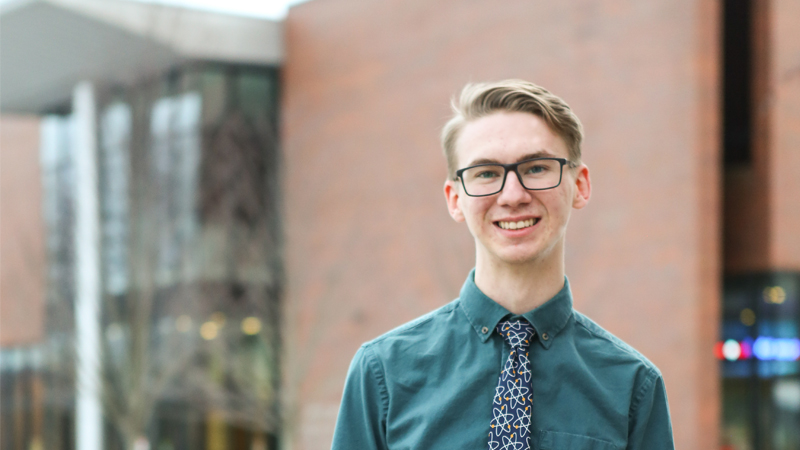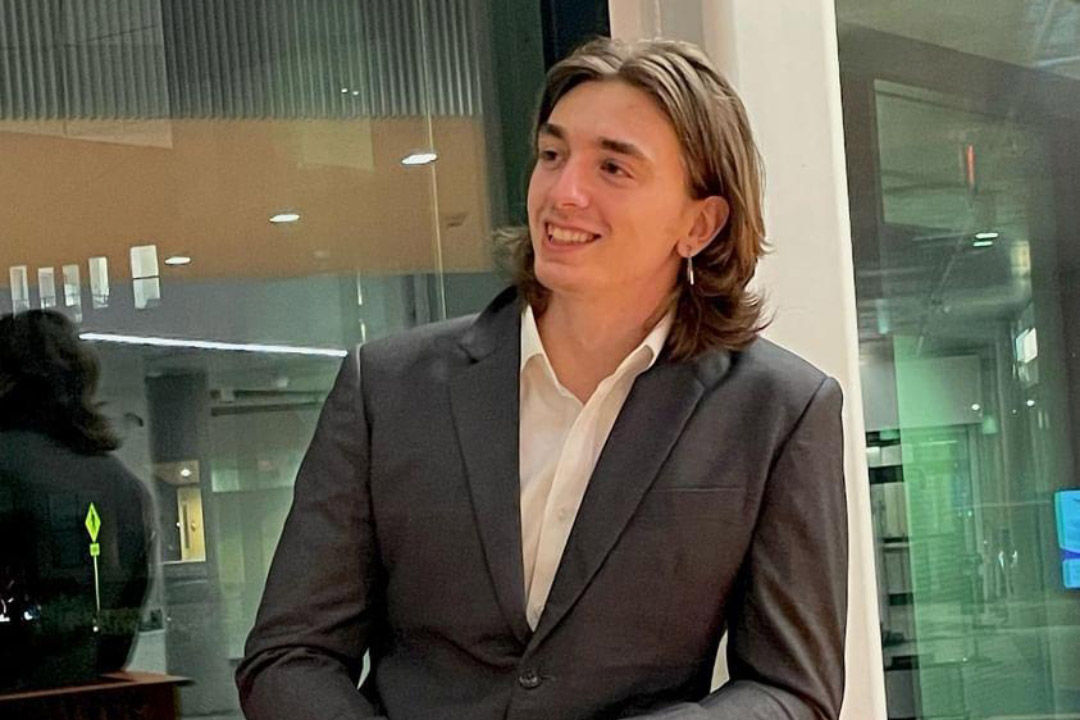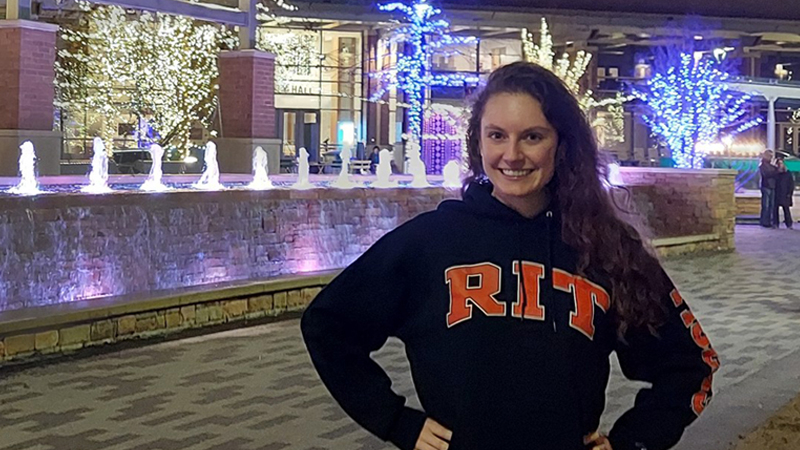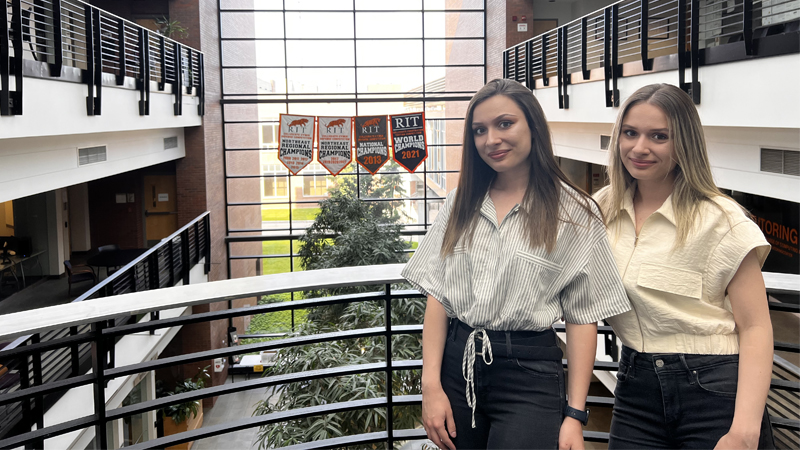Artificial Intelligence, Mathematics, and Designing Mini Protein Drugs
David Longo ’10, CEO of Ordaōs, shares his experience at RIT and explains how computational mathematics allowed him to think outside the box to come up with advanced solutions.
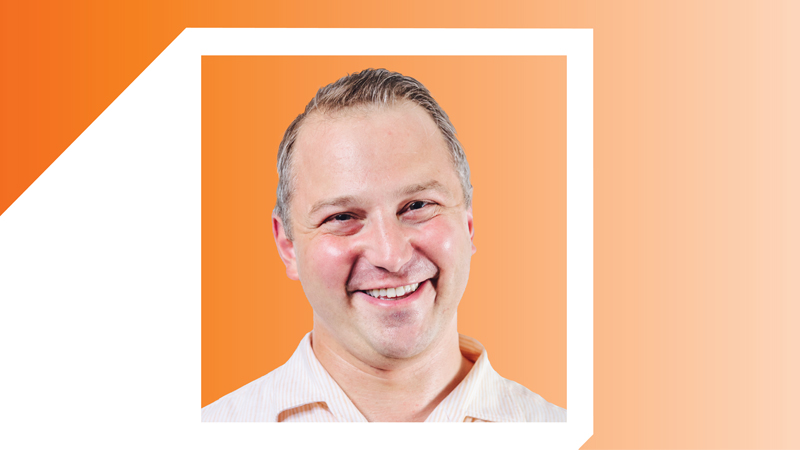
As CEO of Ordaōs, a human-enabled, machine-driven drug design company, David Longo '10 demonstrates a remarkable aptitude for creative problem-solving. He shares his experience at RIT and explains how the computational mathematics program allowed him to think outside the box to come up with more advanced solutions in his work developing novel medical treatments today.
“It was during my time at RIT that I learned how to execute tasks and, more importantly, how to approach issues in innovative ways. This skillset has been essential to the development of my Artificial Intelligence (AI) and drug discovery work.”
David was drawn to RIT due to its breadth of technology proficiency, abundant opportunities for undergraduate research, and renowned career and co-op support. “To put it simply, RIT is a top-notch technical school, and its co-op program is fantastic. I loved attending from the minute I arrived on campus. My decision to pursue a computational mathematics degree was the best choice I ever made.”
Excited to dive into the applied, hands-on opportunities that RIT is known for, David pursued both undergraduate research and a co-op while he was a student. For his undergraduate research, David worked in social network analysis and rumor propagation with Dr. Bernard Brooks, which was funded by the National Science Foundation (NSF). For his co-op, he built his skills in another passion area: music technology. David took a co-op position at WXXI (the local NPR PBS affiliate) where he examined the code used to manage their tape drives for live streaming and broadcast. “It was a really fantastic experience,” David recalls.
“RIT is one of the few places you can acquire practical research experience and have the flexibility to apply it to something you’re interested in, even if that application seems very outside of your major at first.”
During his time at RIT, David experienced the faculty's support professionally, academically, and personally. “I believe the faculty consistently challenge their students to consider alternative approaches to resolving problems. The College takes a vested interest in their students and has provided guidance for my professional endeavors after leaving the university. While numerous faculty motivated me, Dr. Bernard Brooks, Dr. Carl Lutzer, Dr. David Ross, and Dean Emerita, Dr. Sophia Maggelakis, were especially instrumental in prompting my return to support the college.” David is now lending his expertise back to RIT as a member of the College of Science National Council, a group of leading industry professionals who advise the Dean on strategic initiatives and help to shape visionary plans for the future.
Today, David is utilizing his background in computational mathematics and subsequent graduate degrees from Harvard, Stanford, and MIT in biotechnology, artificial intelligence, and entrepreneurship in his role as the CEO of Ordaōs. His company utilizes AI to uncover new medical treatment possibilities. By leveraging recent advancements in AI, new mini protein drugs can be designed to target specific diseases and medical conditions. These drugs can be used to treat a variety of ailments, from cancer to neurological disorders.
David shared a story of an investor he met along the way who grew up during the AIDS crisis, who would wake up every morning wishing a cure was as simple as inputting the parameters of HIV into his computer and popping out a new medication. This inspired David and the Ordaōs team to work towards curing the world’s diseases with computers.
David emphasized how computational mathematics, including algorithms and numerical analysis, are essential for success in the AI field. He noted that these mathematical techniques are fundamental for designing and developing AI-based applications, as they enable efficient large-scale data processing and analysis.
“Now that Chat GPT has become popular, you hear a lot about prompt engineering or engineering the interactions with AI systems at the high level. But when you get down to the level of model development, it requires a great deal of matrix math, linear algebra, and mathematical modeling. For example, modeling a protein sequence as a series of amino acids, or a three-dimensional structure with a series of interactions, requires an understanding of mathematical models. Learning math modeling as an undergraduate turned out to be so integral to what I now do on a regular basis. As a result, I can comprehend how to use AI, models, and mathematical equations to model just about anything.”
“Once you can express it mathematically, you can employ a GPU to make it run through these systems. RIT's computational mathematics program is especially impressive due to the close collaboration between the Golisano College of Computing and Information Sciences and the College of Science. My courses were all in deep optimization and high-performance computing. Because of that, our system is now incredibly efficient and capable of generating drugs at a very rapid rate.”
David elaborated on the functioning of the company. “We've created an innovative AI system that provides biologists with a user-friendly interface and carries out complex computations that generate sequences for drugs. After these drugs are tested in our in-vitro laboratory, the results are fed back into the system to make it more effective. Rather than selling the software, we sell the drug. If a pharmaceutical partner requests the design of a specific small protein modality within certain parameters, we use the computer to design it, validate it in-vitro and then return it to them for the process of getting it on the market.”
“We can program a human's intuition and knowledge, along with the applicable rules, into a system that can replicate it consistently. The traditional approach is to start with a vast number of molecules and gradually narrow down the selection until one test yields positive results. This method yields something that functions, but still requires further tweaking to make it truly effective. In contrast, at Ordaōs, we start from scratch using a powerful AI system to construct the protein strategically, amino acid by amino acid, to avoid any potential issues and maximize its efficacy. We have shown that this approach can be used to attain the desired results repeatedly.”
David shared some valuable advice for students preparing for their future careers in science and mathematics. “If students are currently in high school, they need to understand how to use AI. Otherwise, I can't imagine what they'll do by the time they reach college. AI is transforming all that we do. ChatGPT, Bard, and other AI-driven applications have brought the concept of pair programming and pair experience to the forefront. AI can make a difference in the scientific field, enabling us to offload some of the cognitive load and free up our minds to contemplate higher-level issues. Artificial intelligence is likely to become a sort of best friend or colleague, allowing us to reach new heights of thinking and achieve new possibilities.”





